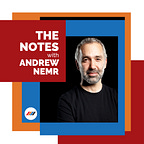In my last note I explored the idea of love – not just a sentiment, or emotion, but a way of life that can fulfill our moral responsibilities. But love has to do with goodness and people, two things that seem like they are unknowable. Have you ever tried to get to know someone? Or define goodness? The further we get into this series the more I find myself bumping up against the idea of knowledge. Without an understanding of how knowledge works, much of this endeavor would be in vain. So here we are exploring a definition of knowledge.
Knowledge is one of those things that is hard to talk about without referring back to itself. For instance, in defining knowledge, I might want to say something like, “Knowledge is the accumulated content or description of what we know.” How frustrating it is to look up definitions in the dictionary like, “Patience – of or having to do with being patient.” And therein lies the problem. What does it mean to know something? Well, it means that you have knowledge about it – and around and around we go. To dodge this problem for the moment at least I might say instead, “Knowledge is something that we are always gaining, and can’t really live without.” That’s a better start at least – a way of guard-railing what we are trying to talk to about. If we are always gaining it, and can’t really live without it, the definition we come upon for knowledge must come to terms with those attributes at least.
In this note I’m going to propose a definition and then work it out as opposed to exploring first then landing on a definition, as I’ve done in previous explorations. So, let’s start with this:
Knowledge is interactive relationship.
Knowledge is what comes of interacting with an idea, pursuit, environment, or people. The friend that you spend significant time with, for example, you come to know in particular ways. A teacher knows their students by interacting with them. Parents know their children (and children know their parents) through interactions in the family. Co-workers come to know each other through interactions at work. For each area of our lives, and the people in them, we come to knowledge through interactive relationship.
To give a vision for the kind of intimacy interactive relationship can bear, the Old Testament of the Christian Bible goes so far as to use the euphemism “know” as a substitute for sex. As in, Abraham knew Sarah. The proposition here is the intimate physical interaction of sex is akin to intimate personal knowledge of the person. Knowledge is interactive relationship on a person-to-person basis – encapsulating all parts of the person – intellectual and emotional, physical, and spiritual.
What Knowledge Isn’t
There are some descriptions of knowledge that refer to documented knowledge as knowledge. That is, if something is written in a book, it is knowledge. It’s important to say that this might be true for the writer, but it isn’t for you or I, until we attempt to apply it in our own lives. We might imagine an instance in which we are asked to give advice, and in response, provide an idea of something we have read. We might be asked something like, “Are you sure?” We might have to say something like, “I actually haven’t tried it, but I trust the source.” If we are further challenged on our trust of the source, we may find ourselves relying on interactive relationship with the author as a person, their past works, or their case studies (documentation of their ideas in practice). Knowledge is not documented information. It isn’t even the information we have accumulated. I am one of those folks who collects things – books, music, and movies for example. My knowledge of my collection is limited to the works I have interacted with – read, listened, or watched. My knowledge of the content of my collection is limited to that which I’ve applied or worked out in my own life. What turns information into knowledge is the willingness to interact with it. That willingness is rooted in trust.
Knowledge Equals Engagement
Knowledge is contextual in the same way that interactive relationship is. As mentioned earlier, different kinds of interactions lead to different areas of knowledge. If parents only interact with their children in the context of family interactions, and not in larger groups, for example, they may never get to know their children as they interact with people outside the family. Not that the child may be characteristically different, rather that the contextual adjustments that everyone makes in such circumstances will never be known.
In every interactive relationship there is a part that requires our engagement. If I were to only observe situations, I could only get so far in my pursuit of knowledge. By interacting, we are able to know much more. Instead of having to say something like, “I noticed that when one person did this, another person did that,” we can say, “when I said this, I noticed that you did that, and I felt this,” and so on.
Through the course of interaction, we have the opportunity to learn about ourselves. This is especially true if we acknowledge our part and take time for reflection. This kind of reflection upon our part in interactions as well as the part of others can lead to a wonderful sense of curiosity. We can ask, “I wonder why I felt this, and you did that in response to what I had said?” Without immediate condemnation – being stamped guilty or shamed for a particular response – we can find a opening to a different way.
Our own actions speak to our pursuit of knowledge. We ask questions, offer invitations, and even move in particular ways that speak to our curiosity through action. We respond to scenarios in ways that speak to our willingness to interact – to be engaged in the pursuit of knowledge. This is interaction, which takes engagement, which requires exposure, which can be risky. In this way acquiring knowledge is related to the level of exposure we allow ourselves in our efforts to interact. When considering exposure, and by extension measuring risk, then, it might be good to consider what knowledge we might gain in the process, and if that is worth the risk.
What can be known?
There are four areas that can be used to describe the state of our knowledge. They are:
Known knowns – This is everything you know that you know.
Known unknowns – This is everything that you know that you don’t know
Unknown knowns – This is everything you don’t know that you actually know
Unknown unknowns – This is everything the you don’t know that you don’t know
While these categories are helpful in sorting out knowledge generally, our limited nature forces us to choose areas of knowledge to pursue. We can’t know everything. Knowledge is limited by our ability to interact with whatever we are trying to know. Our knowledge may extend through trusted relationships (what other people know) as mentioned earlier, but such “knowledge” may actually be better described as belief, which I’ll address a little later. The question before us now is how our limited nature keeps some knowledge away from us, if any. I would propose that knowledge – in the realms of the seen and unseen, that is the material and the spiritual – is limited by our ability, even our willingness to interact with whatever we are relating to.
Consider knowing a person’s character. Someone’s character lives in the realm of the spiritual – it is unseen aside from what is manifest in their actions. Their character is the general disposition of their will, or heart, or spirit. Can that be known? Yes, of course it can. How many times have I said things about my friends like, “Daniel is a generous person,” or “Rich is a thoughtful person.” I base such statements on the interaction I have had in relationship with my friends. My willingness to be with (and not just observe) my friends in various states, reconning with different kinds of stresses and joys, allows me to know them (and myself!). If I can’t be with them, for whatever multitude of reasons I can’t really know them.
Here we come to find that the greatest challenge to knowledge is actual interaction. Can’t interact with the idea, person, or pursuit, for whatever reason? Then we can’t know it. Of course, there may be other things we could say about our state of interacting with the idea, person, or pursuit. Things like, “I trust this,” or “I think this is true,” or “I’ve heard about that.” These all describe different ways connections are made without hitting the threshold of knowledge.
What comes before or after knowledge?
Finally, it seems important to address why knowledge should be sought in the first place. After all, so much is documented already, so much is “known,” why do I need to be attentive to the interactive relationships I have with the world around me? Can’t I just read a book and grow?
Knowledge has to do with what we consider before we act. Especially in cases in which we are thinking before we are acting, there are things we rely upon to build the necessary confidence to act. Of course, what bits of knowledge we rely upon and in what situation this kind of thoughtful consideration comes up may vary dramatically from person to person. In general, what comes before knowledge is belief. Before we have interacted and developed our own knowledge of the world around us, we act from a position of belief. Belief is a very serious subject often relegated to fairytales. However, we use beliefs every single day and everyone has them. A belief is anything that we are willing to act upon as if they were true. If we don’t know something to be true, but act upon it as if it were true, it is a belief.
Many situations may come to mind in which belief moves us toward action. We believe a chair can hold us, so we sit down on. We have doubts about the trustworthiness of a potential business partner, so we slow the development of the relationship (putting the brakes on) or become more attentive to all actions in the relationship (covering our backs). There are, however, ways in which we build up confidence in a particular way if our own belief isn’t quite enough to move us towards action. Especially as adults, before we take the risk to interact with an idea, person, or pursuit we can, and often do, collect data or information. These are bits of descriptive information from various sources that we may consider before taking action. We might ask a friend about the comfort or structural integrity of the chair before sitting. We might inquire or research past business dealings before engaging with a prospective business partner. Once action occurs, we are in the realm of gaining knowledge. Note that, the act of data collection gives knowledge of how to collect data, but not necessarily about the area of knowledge to which the data pertains. We won’t know about the chair until we sit on it. We won’t know about the business partner unless we’re dealing with them.
After we act and interact again, we begin to develop our own set of knowledge. We can compare this set of knowledge to other sets of knowledge from family, friends, sacred texts, or even the information we gathered before acting, for example. But our knowledge set remains our own. This is the gift of interaction – a deeply personal reference which we use to navigate the world.
Communal Knowledge
If you’ve gotten this far you might have noticed a glaring problem implicit in the definition of knowledge we’ve been exploring. The entire human race would be stuck in a never-ending loop of personal interactive relationship restarting with every new life without some mechanism to pass on knowledge. But you might say, “How can knowledge be passed on if it is personal interactive relationship that creates knowledge?”
Over the course of human history knowledge that has been tested across generations and found to be true is considered wisdom. Wisdom might be thought of as organized knowledge that has been applied and survived over time and found trustworthy across generations. Wisdom is proposed as good for the individual. Elder generations giving advice on how to find a good husband or wife, be successful in business, or having a pattern of life that leads to fulfillment is the stuff of wisdom. Communal rituals, oral traditions, and apprenticeships have been some of the most common mechanisms used to pass on such wisdom from one generation to another. Sacred texts attempt to document such wisdom and set it in motion in the hearts of seekers. With every proposition of wisdom there is a kind of assumption that the wisdom will be worked out. It must be applied in the context of the current life. The wisdom is the starting place – a way of standing upon the knowledge of previous generations. We don’t have to learn everything on our own. In this way, applied wisdom, becomes personal knowledge. That knowledge is what we as individuals continue to act upon, and by doing so the wisdom is contextualized and confirmed in our lives and energized once again to be passed on to the next generation.
One Last Note
To attempt to close the loop on my first proposition, I will say this. Knowledge is what we use to undergird our actions. We can’t live without knowledge if we want to act with some sense of the purpose of what we are doing. If we desire to do good, to love even, we must come to know what goodness or love is, what they look like, how they come to be. Without knowledge our actions toward these ends devolve into guesses – random acts of thoughtless movement, throwing spaghetti at the wall to see what sticks. But we are continually gaining knowledge. Everything we do happens in the context of relationships. We are always interacting in relationship to the world around us. If we attend to this process we might find ourselves surprised by the amount of knowledge we can gain even in a single day.











